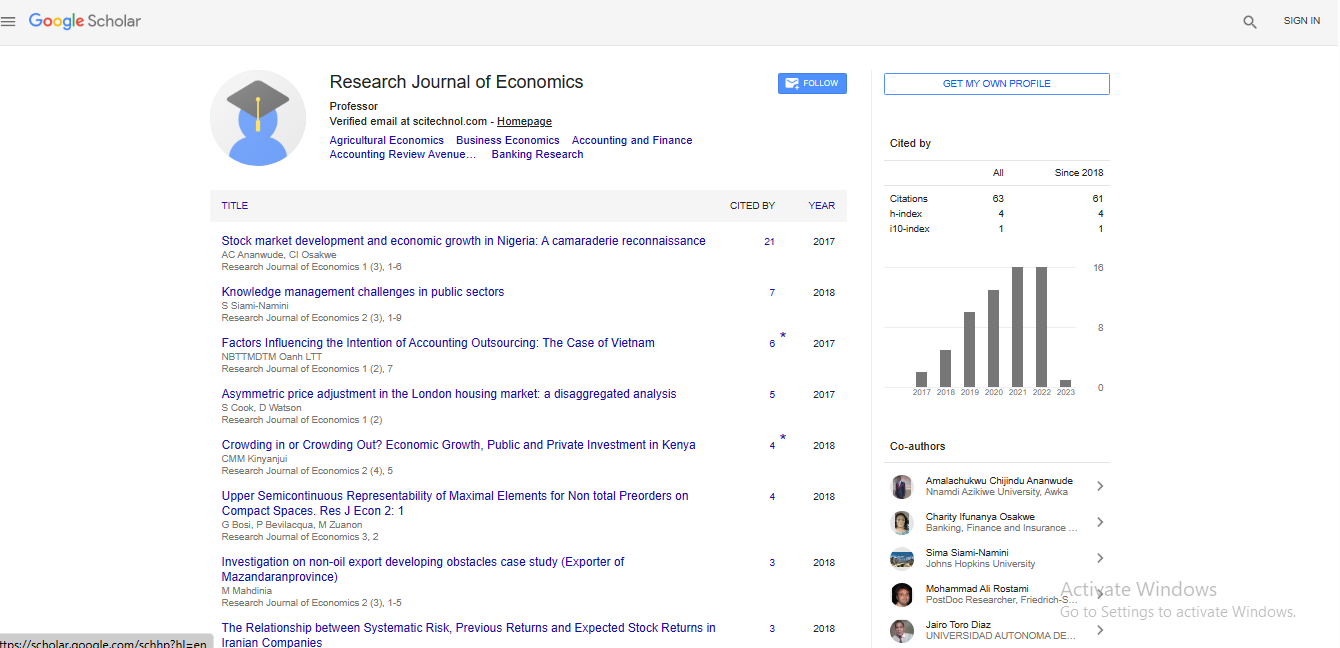Editorial, Rje Vol: 5 Issue: 9
Editorial Announcement
A market economy is an economic system in which economic decisions and the pricing of goods and services are guided by the interactions of a country’s individual citizens and businesses. There may be some government intervention or central planning, but usually this term refers to an economy that is more market oriented in general. The theoretical basis for market economies was developed by classical economists, such as Adam Smith, David Ricardo, and Jean- Baptiste Say. These classically liberal free market advocates believed that the “invisible hand” of the profit motive and market incentives generally guided economic decisions down more productive and efficient paths than government planning of the economy. They believed that government intervention often tended to lead to economic inefficiencies that actually made people worse off. Market economies work using the forces of supply and demand to determine the appropriate prices and quantities for most goods and services in the economy. Entrepreneurs marshal factors of production (land, labor, and capital) and combine them in cooperation with workers and financial backers, to produce goods and services for consumers or other businesses to buy. Buyers and sellers agree on the terms of these transactions voluntarily based on consumers preferences for various goods and the revenues that businesses want to earn on their investments. The allocation of resources by entrepreneurs across different businesses and production processes is determined by the profits they hope to make by producing output that their customers will value beyond what the entrepreneurs paid for the inputs. Entrepreneurs that successfully do so are rewarded with profits that they can reinvest in future business, and those who fail to do so either learn to improve over time or go out of business. Every economy in the modern world falls somewhere along a continuum running from pure market to fully planned. Most developed nations are technically mixed economies because they blend free markets with some government interference. However, they are often said to have market economies because they allow market forces to drive the vast majority of activities, typically engaging in government intervention only to the extent it is needed to provide stability.
Abstract
A market economy is an economic system in which economic decisions and the pricing of goods and services are guided by the interactions of a country’s individual citizens and businesses. There may be some government intervention or central planning, but usually this term refers to an economy that is more market oriented in general. The theoretical basis for market economies was developed by classical economists, such as Adam Smith, David Ricardo, and Jean- Baptiste Say. These classically liberal free market advocates believed that the “invisible hand” of the profit motive and market incentives generally guided economic decisions down more productive and efficient paths than government planning of the economy. They believed that government intervention often tended to lead to economic inefficiencies that actually made people worse off. Market economies work using the forces of supply and demand to determine the appropriate prices and quantities for most goods and services in the economy.
